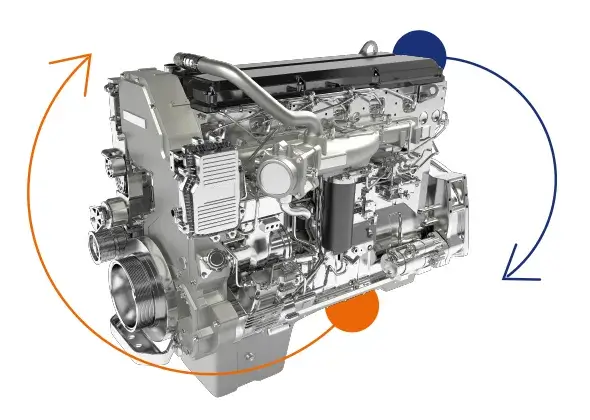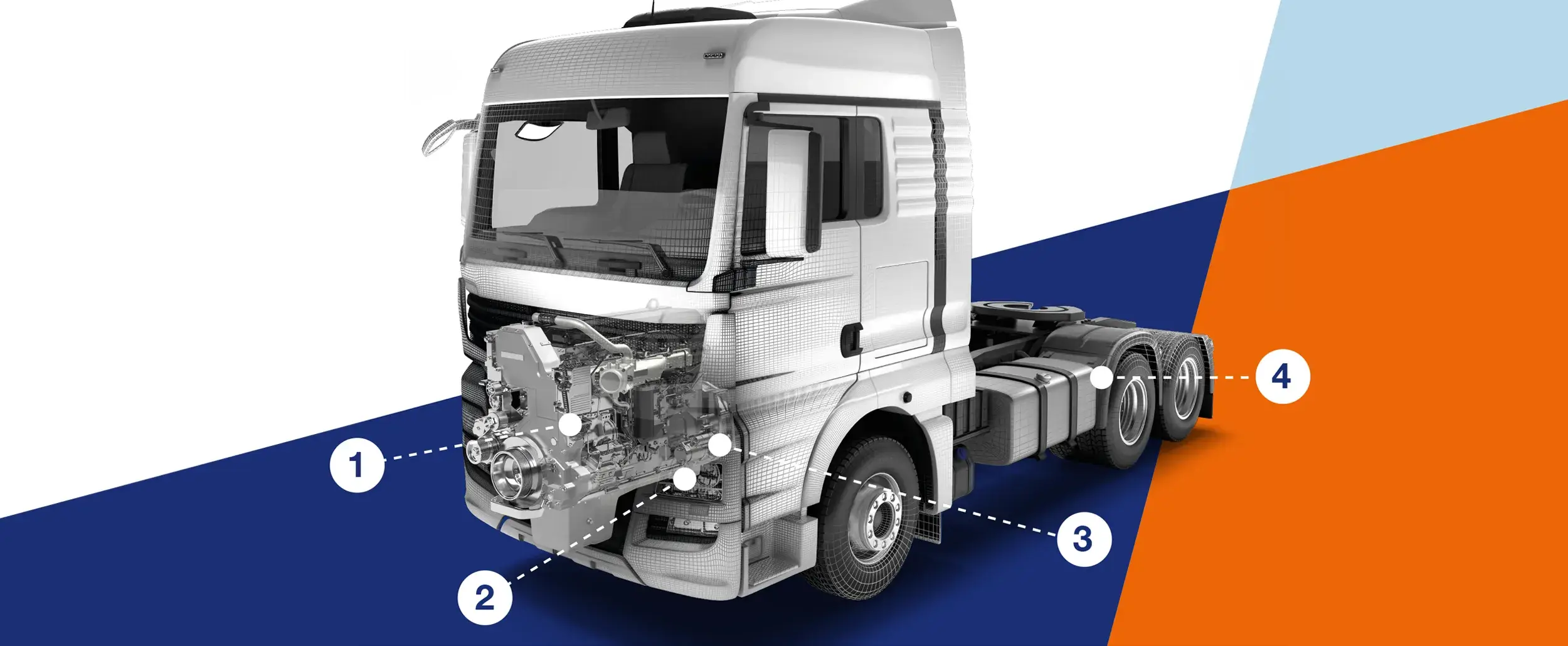
Oil For Diesel Engines
Navigating the Evolving Landscape:
Fleet operations are constantly challenged to maintaining and improving their fleet efficiency. With the transportation industry witnessing technological advancements, regulatory changes, and increasing environmental concerns, fleet operators are required to proactively adapt their practices to stay ahead.
By prioritising data-driven decision making, adopting sustainable technologies, and staying agile in the face of change, fleet operators can navigate the evolving landscape and drive efficiency across their operations. Embracing innovation and strategic planning are key to staying competitive and achieving long-term success in the dynamic world of fleet management.
For Fleet Managers in today’s business environment, keeping your vehicles operational and managing the pressures of running costs within tighter budgets can feel like a tough, all-consuming task.
The challenging operating Environment
Turbo charged Engines
Turbocharged engines are more compact and are required to operate under more intense conditions due to the demand for an even greater power output. Such demands create a more critically hostile operating environment for the lubricant.
Exhaust Gas recirculation / Selective Catalytic Reduction (SCR)
The latest diesel engines now include recirculation and conversion processes that help reduce nitrogen oxide emission levels. To be fully effective, they need to work in partnership with more advanced formulations of lubricants.
Diesel exhaust emission control
Diesel engines emit a mixture of air pollutants created by the combustion process. The solid pollutants – known as particulates – are emitted from the exhaust as soot, and in modern Low Emission engines managed by Diesel Particulate Filters (DPF), the effectiveness of which can be hindered by lubricant chemistry. Lubricants of special chemistry – Low SAPS (Sulphated Ash, Phosphorus & Sulphur) are required for effective functioning of these filters.
Bio-Diesel Fuels
The lower volatility of biodiesel can change the lubricant's viscosity, causing wear. In older vehicles biodiesel can cause higher levels of sludge and other harmful deposits.
Gulf’s Fleet Solution
1 | Lubricant Engine oilExceptional anti-wear, corrosion protection and engine cleansing with improved fuel economy and longer drain interval. Using the correct oil in commercial vehicles can reduce maintenance costs while protecting your engine from wear and overheating. Our specially formulated commercial lubricants work hard to keep your engine clean and functioning at full capacity – for longer, no matter what the climate. |
2 | Power steering fluidSuperior performance and protection of power steering unit. |
3 | Manual and automatic transmissionsExceptional friction, wear, pitting, corrosion protection and durability for transmission and gears under highly stressful and severe operating conditions and extended drain intervals. |
4 | GreasesSpecialised greases for chains, wheel bearings, coupling devices and fifth wheels. Protecting against damage and corrosion to ensure smooth movement that helps to reduce maintenance costs. |





